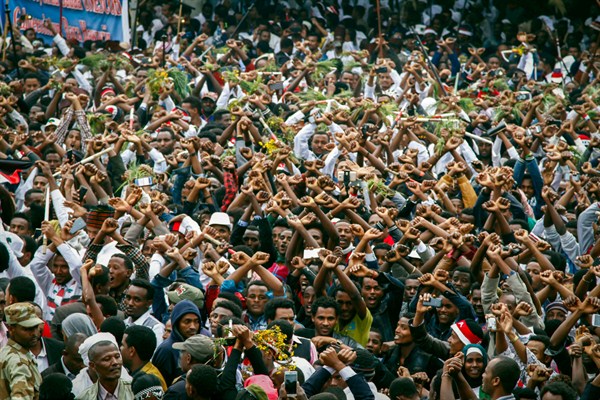Ostensibly intended to quell unrest perpetrated by “anti-peace” forces, Ethiopia’s extension of a state of emergency in March signals a continued crackdown on the country’s restive and aggrieved population. This repression disproportionately affects 65 million Ethiopian youth, who make up more than two-thirds of the country’s total population. Such brutality has increasingly left these young people—Ethiopia’s greatest asset or, conversely, a massive liability—a choice between two dangerous options: escape or rebel.
As is the case elsewhere in Africa, Ethiopia’s youth bulge is a double-edged sword. It strains scant natural resources and limited infrastructure, but, if harnessed, could be a boon to the country’s economy and the foreign companies looking to outsource operations there. But the government’s stubborn refusal to reform undermines prospects for its increasingly educated and connected youth to stay and prosper in Ethiopia. Moreover, the violent nature of the government’s clampdown has extinguished nearly all avenues for youth to legally and peacefully express their grievances, creating the conditions for violent rebellion.
Young Ethiopians are increasingly able to afford and access the internet, where they flock to social networking sites like Facebook and Twitter, or connect with friends and relatives on messaging applications like WhatsApp. Access to mobile data has given even Ethiopia’s rural youth a window into the political transformations taking place across the Middle East and Africa, as well as across their own country since sporadic protests began last year. The internet also serves as a conduit to broadcast malfeasance by the country’s security forces—social media was a key tool for disseminating photos and videos of the bloody crackdown on protesters to the diaspora and international activist organizations. That explains why the government has so frequently blocked the internet.

